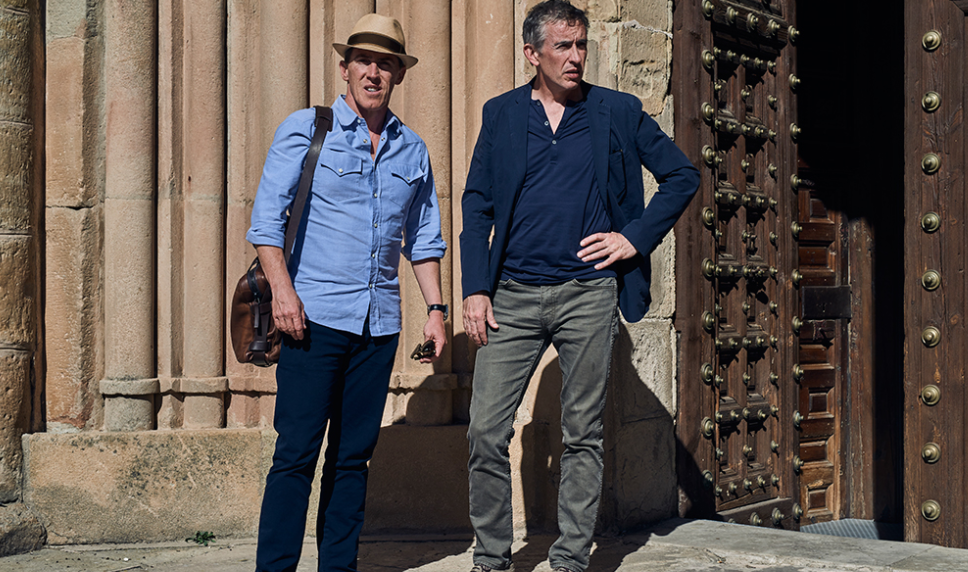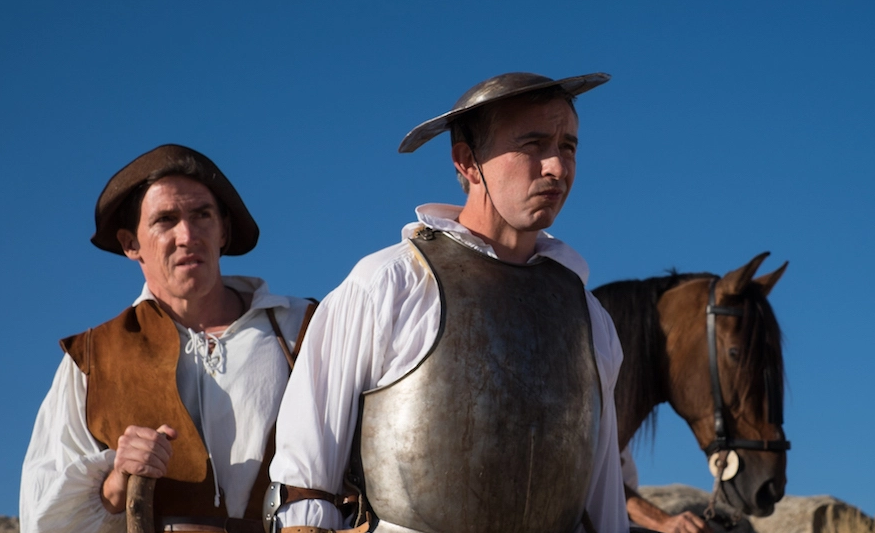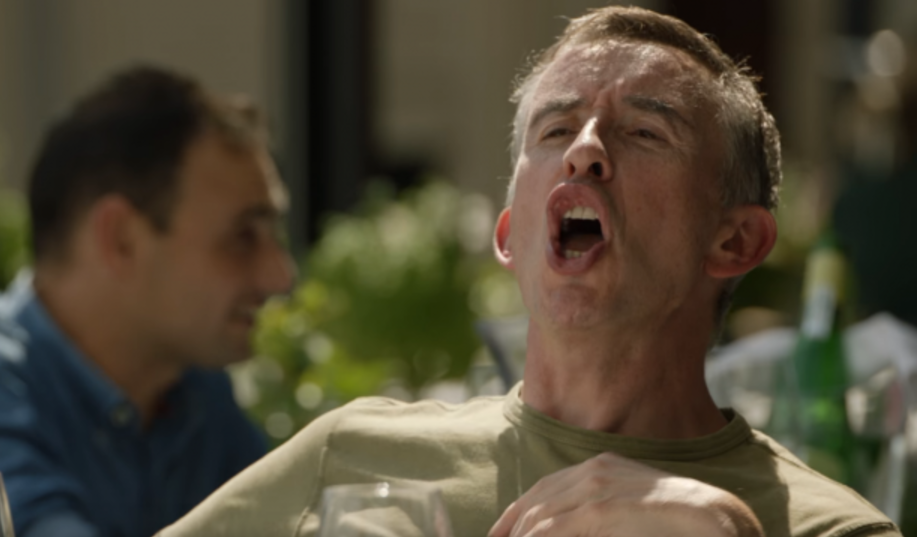You are presented with the opportunity to position yourself a metre or so away from two men sitting together at a restaurant. You’re allowed to watch them while they eat and talk. Their food is marvellous, but you have no food. The men are moderately entertaining, the waiter is selling this particular opportunity to you by lauding the repartee of these men, although their conversation appears to boil down to impressions of celebrities that range from good to poor as well as fleeting mentions of fascinating subjects unaccompanied by any insight into those subjects. There’s a catch, the waiter says. You’ll have to pay twenty dollars.
There’s something decidedly off about Michael Winterbottom’s The Trip series. It’s elevated reality television. People who daydream about renovating watch The Block and people who daydream about falling in love watch The Bachelor. People who dream of good food, wine, scenery and a knowledge of Cervantes watch The Trip. But it’s important to remember that when we watch Steve Coogan and Rob Brydon enjoy the finer things in life, we are not participating.

The Trip to Spain is absolutely easy watching, as was The Trip to Italy before it and The Trip before that. This is the worst of the three, because it’s either the same old schtick, or it’s worse. If you are new to the concept, every instalment focuses on Coogan and Brydon as they undertake a countryside tour of excellent restaurants.
Except that they aren’t Coogan and Brydon, they’re a fictional Coogan and Brydon as imagined within the world of this series, heightened versions of themselves. Coogan is more successful in real life, so Winterbottom’s Coogan is vain and obsessed with flaunting his success. Brydon has a family in real life and so here he is a down to earth family man.
The banter is seemingly the draw of this series, the characters’ fictional narratives adding a meagre weight to proceedings. Winterbottom is retreading old ground with those narratives in this most recent instalment. If the series ever had something to say, it has already said it, a reality accentuated by the absolutely bizarre closing moments of The Trip to Spain.

The subjects of the conversations range from Cervantes to the Moors, but neither Coogan nor Brydon have anything more than tidbits, taken from the guide book they may be reading, to impress one another, or themselves. This isn’t a slight on Coogan and Brydon, since these characters are not actually Coogan and Brydon. These films occupy uncertain territory between fact and fiction, and the purpose of this decision by Winterbottom is unclear, although it renders his Trip universe meaningless.

If Coogan were an entirely fictional character, we might care, because we suspend our disbelief for the sake of fiction. If Coogan’s problems as depicted in the film were actually problems that Coogan has, we also might care. What is difficult to care about is this half Coogan creation of Winterbottom’s, because either way you approach it, the other way obstructs our ability to invest.
Instead of going to the movies and spending twenty or so dollars watching Michael Winterbottom’s The Trip to Spain, save the money and put it towards your own trip to Spain or your own bottle of wine or your own night out with your friends. Coogan and Brydon, particularly Brydon, are undeniably congenial company, but they’re not keeping our company in these films, they’re enjoying a holiday, and we’re the suckers who are paying for it. As to taking up that waiter’s offer to sit and watch two men talk and eat at a restaurant for twenty dollars, would you even do it for free?